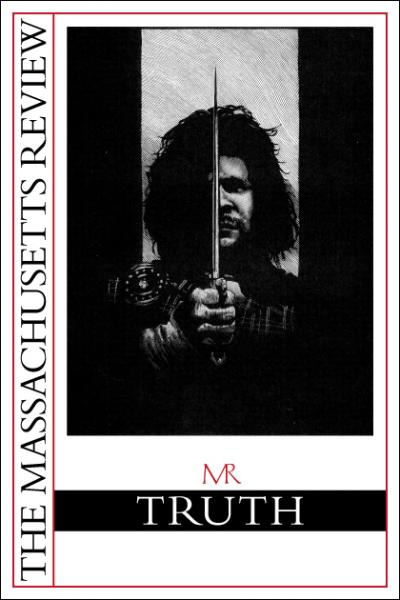On Friday evening, at 9:48 p.m., the Massachusetts Review (along with hundreds of other art groups across the U.S.) was informed that its most recent National Endowment for the Arts (NEA) award had been terminated. We had been given a $15,000 grant to support the publication and promotion of a special issue featuring incarcerated writers and their families. The administration’s letter rationalizes their illegal impounding of previously committed funds as an effort to realign agency goals to match those of the White House. The plan is, it states, to “focus funding on projects that reflect the nation's rich artistic heritage and creativity as prioritized by the President.”
One priority on their list—to “celebrate the 250th anniversary of American independence”—had already been circulated as part of the priorities for the 2026 round of NEA funds. As a Massachusetts-based arts organization, where we have deep memory of what it means to declare independence from the overreaching tentacles of oppressive monarchical authority, we toyed with the idea of proposing a simple theme for next year’s issue: REVOLUTION. Every 250 years or so, it seems, we need to end a monarchy.
To defend public-serving institutions like the NEA, it will also be necessary to explain why taxpayers should fund the arts. No one need defend the value of art itself: humans have been making art since we were all living in caves; for our species, art is as necessary and natural as breathing. No serious person says otherwise—they just grouse about art they don’t like. But why should the public pay for it?
In 1967, the founding editor of this magazine, Jules Chametzky, was one of five signatories on a document that created, following a suggestion of the NEA, the first national organization to coordinate the work of literary magazines. That organization—then the Coordinating Council of Literary Magazine, later the CLMP (Council of Literary Magazines and Presses—continues its leadership role today. One of Jules’s jobs in the early years of the organization was to vet and make decisions on grant applications. From that process, he told me, he learned that no literary magazines were self-sustaining: all of them, without exception, had either “angels” (rich donors) or institutions (most often colleges or universities) behind them. Carmina non dant panem: the arts don’t pay for themselves. They are—and always have been—subsidized. The only real question is who should pay? And who should decide where the money goes?
Certainly great art has been created in other times, following other models of funding. There has not always been an NEA. Renaissance playwrights like Shakespeare wrote and performed in the shadow and patronage of English monarchs, French neoclassical dramatists Molière and Racine basked in the light of Roi du Soleil. The new oligarchs surely have something similar in mind. Remember, they believe that art should “reflect the nation’s rich artistic heritage and creativity as prioritized by the President.” What one must need do to earn the patronage of this President is obvious, whether it will result in art rather than Soviet-style adulation is another question entirely.
I’ll end with a second resonant parallel. During the early nineties, the city of Sarajevo endured nearly four years of siege, with enemy soldiers and heavy artillery on the surrounding hillsides, shelling the city and slaughtering civilians without mercy. In those same years, however, the Sarajevan arts community created more work than ever: museums and galleries had exhibitions, theaters staged over a hundred plays, orchestras and rock bands played concerts. And newspapers and universities continued to function as well: going underground when necessary, the dailies did go out, and classes continue to meet. All of this, I should emphasize, happened only because people were willing to risk their lives—and not just the artists, audiences too.
This year the Massachusetts Review will—come what may—still publish its special issue on incarcerated writers and family, because work like this is what we do. We won’t bow to please a king, and we won’t make our art alone. As has been true of all our work, we’ll do it with your help.
Thank you for your support.
Jim Hicks, for the editors
Outgoing Executive Editor





